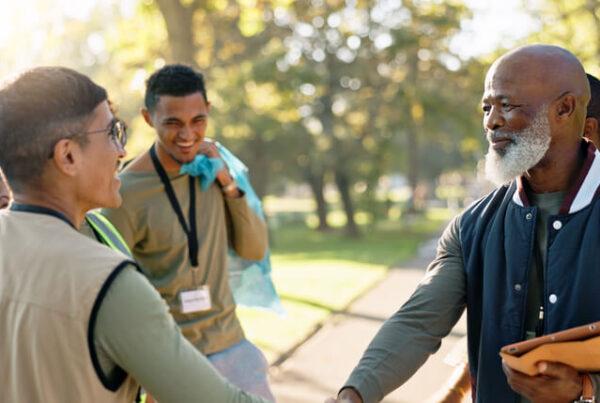
Through community service worker training, future professionals learn how to approach every client with compassion, awareness, and tools that promote healing, not harm.
When someone walks into a shelter, addiction recovery center, or youth outreach program, they’re often carrying more than just today’s problems. Many clients who access community support services have experienced trauma, some recent, others occurring long ago. That’s why trauma-informed care isn’t just a helpful approach in community service work; it’s essential.
What Is Trauma-Informed Care?
Trauma-informed care means recognizing how trauma, whether from abuse, neglect, violence, or displacement, shapes a person’s behavior and response to stress. It involves understanding that certain actions, emotions, or reactions might be rooted in experiences a client hasn’t even shared out loud.
Rather than asking, “What’s wrong with you?” trauma-informed professionals ask, “What happened to you?” And they approach each interaction with the mindset that every person is doing their best with the tools they have.
Why It’s Crucial for Community Service Workers
Community service workers are often on the front lines of support. Whether you’re helping someone find housing, apply for services, or cope with addiction, there’s a good chance you’re also helping someone process difficult past experiences.
Without a trauma-informed approach, even well-meaning actions can unintentionally trigger anxiety, fear, or shame in a client. But with the right training, you can learn how to:
- Recognize signs of trauma
- Respond in ways that reduce re-traumatization
- Build trust through consistency and respect
- Empower clients by giving them choices
- Foster a safe, supportive environment
These skills aren’t just good practice; they’re what make your work effective and sustainable in the long run.

Trauma-informed care is an essential topic in community service worker training
What You’ll Learn in Community Service Worker Training
In the community service worker diploma program at AOLCC Alberta, trauma-informed care isn’t a side topic. It’s woven into the way we teach everything, from communication skills and ethics to case management and crisis intervention.
You’ll learn how to apply trauma-informed principles in real-world situations through case studies, classroom discussion, and role-playing exercises. By the time you graduate, you’ll be ready to approach every client with patience, empathy, and professionalism.
And you won’t just understand trauma, you’ll understand how to avoid triggering it, support clients in their healing, and refer them to the right services when needed. You’ll reach that moment when a client opens up to you, not because they have to, but because they feel safe enough to do so.
Empowerment, Not Fixing
It’s important to know that trauma-informed care doesn’t mean fixing people or their problems. It means creating space where they feel supported enough to take their own next steps. It’s about empowering clients, not taking control of their healing.
That mindset helps protect not just the client, but the worker too. It keeps the work sustainable and the relationships healthier, something every community service worker training graduate needs to build a long-term career.

Community service worker training that includes trauma-informed education provides value
Why Employers Look for This Skill
Today’s social service organizations are prioritizing trauma-informed care more than ever. From government programs to non-profits, employers want workers who understand how to respond to trauma with sensitivity and strategy.
Graduates of community service worker training that includes trauma-informed education bring real value to the field. They’re prepared to step into challenging environments with confidence, care, and clear boundaries.
If you’re preparing for a career in social services, now is the time to gain the trauma-informed lens that today’s professionals rely on. With the right community service worker courses, you’ll develop the knowledge and self-awareness to make a lasting, positive impact, without burning out.
At AOLCC Alberta, our programs are built to prepare you not just for a job, but for meaningful, compassionate work. The kind that makes a difference.
Are you ready to make a difference?
Your career awaits!






